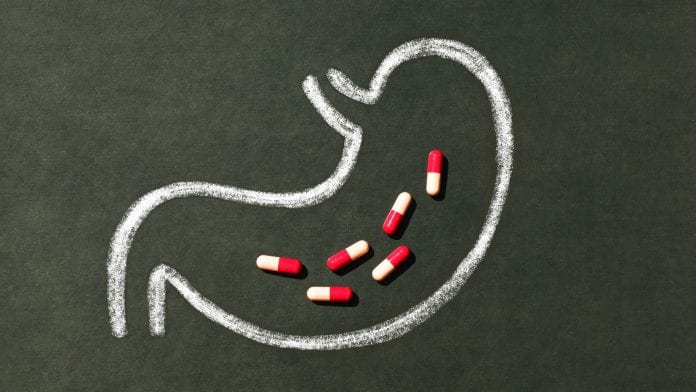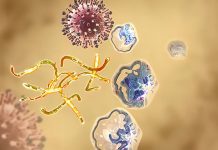
Scientists at the University of Birmingham have engineered a probiotic drink that can potentially combat drug resistant bacteria.
The scientists have patented a key genetic element that can tackle the genetic basis of resistance. The probiotic drink which has the potential to fight drug resistant bacteria commonly found in the human gut including, E. coli, Salmonella and Klebsiella pneumoniae.
The drink works by targeting small DNA molecules, known as plasmids, inside bacterial cells. The plasmids often carry genes that give resistance to antibiotics, which the bacteria can use. The molecules reproduce independently and each time they do, they bring the drug resistant bacteria with them.
The scientists discovered that by preventing the resistant genes from replicating, they were able to effectively re-sensitise the plasmids to antibiotics. The full results of the study have been published in the journal PLOS One.
Professor Christopher Thomas, lead researcher, explained: “We were able to show that if you can stop the plasmid from replicating, then most of the bacteria lose the plasmid as the bacteria grow and divide. This means that infections that might otherwise be hard to control, even with the most powerful antibiotics available, are more likely to be treatable with standard antibiotics.”
The drink will contain bacteria (in a similar way to drinks like Yakult) which carry a new type of plasmid, which the researchers call pCURE plasmids. The bacteria work in two ways: they prevent the resistance plasmids from replicating and they also block a so-called ‘addiction system’ which the plasmids use to kill any bacteria that lose them.
The pCURE plasmid carries a stable toxin and an unstable antidote into the host cell. If the plasmid is lost from the cell, the antidote breaks down, leaving the harmful toxin to attack its host and stop the drug resistant bacteria from duplicating. The antidote ensures that the cells who have lost the resistant genes survive and take over the gut.
Thomas explained: “We manipulated our pCURE plasmids to incorporate genes that block the replication of the resistance plasmid. We also target the plasmid’s addiction system by designing our pCURE plasmids to ensure the antidote is still available to the host.”
The research team discovered that by doubling the number of copies of the pCURE plasmid in each bacterium it became very effective at displacing different types of resistance plasmids and would spread through laboratory cultures unaided, to clear out resistance.
The scientists collaborated with colleagues at the University of Sydney, Australia, to test the pCURE plasmids in mice. They noticed the pCURE plasmids worked effectively but needed to be ‘primed’ first. To combat this, they gave the mice an initial dose of antibiotics to reduce the number of competing bacteria.
The scientists are now seeking funding for a clinical trial where the next step would be to see if plasmids can spread fast enough in human volunteers to get rid of resistance plasmids.
“This is a promising start,” says Thomas. “We aim to make modifications to further improve the efficacy of our pCURE plasmids before moving towards a first clinical trial.
“Antibiotic resistance is one of the biggest medical challenges of our time, we need to be tackling this on a number of different fronts including by reducing our use of antibiotics and searching for new, more effective drugs. Our approach, which tackles one of the causes of antimicrobial resistance at a genetic level, could be an important new weapon in this battle.”
























